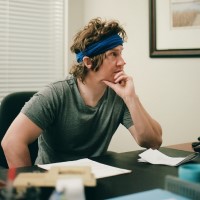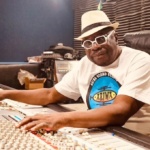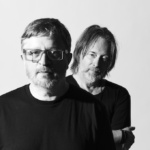How did you become a filmmaker?
When I was very young I loved movies, especially Robin Williams. I wanted to be him. Whatever movie I saw.. the ones I liked best were the ones where I wanted to be the person in the movie. At a certain age I realised movies were made by someone, and then I decided that was what I was going to be.
I went to film school and then after I graduated I started making short films with my friends, and one of those shorts became my first feature which was a fake documentary about a school shooting and it was shot as if it was a real documentary. And it just hit a chord. I’m interested in playing with what audiences think is real. I made another movie after that about faking the moon landing, it was a fake documentary about faking the moon landing, and then I made a television show shot in Toronto which was also a fake documentary.

I realised at some point that the personality of a film director is not a very fun personality. They are quite serious and particular. I’m not a very particular person. I tricked myself into thinking I would be a good filmmaker but through film school I thought I wasn’t very good at making movies in terms of what to put in shots. I’m bad at that – things like shots, camera angles, visual storytelling. But through making videos with my friends, I taught myself how to make movies from in front of the camera rather than behind the camera. That was a breakthrough for me. In this movie Blackberry I’m very much directing the movie from inside the movie. I’m more comfortable talking to the actors that way, it’s like play. It’s also the reason I shot the movie in the style I did, because then I don’t need to put as much pressure on myself to figure out what the shots will be and can let the camera team figure out what they will be on their own. And I can concentrate on creating realistic moments with the actors. It makes the relationships between you and the cast really great. Me being in charge behind it all, helped the other actors respect my character who was an easy character to disrespect since he was so silly.
All my films require me to adopt a persona to make things happen. You’re trying to do the impossible. All movie making requires a bit of trickery. I learned that from Orson Welles. Films have taken over from what magicians used to do. Welles was an extremely talented magician, and he is a role model of mine, especially in his late career. He made a fake documentary called F for Fake which was a huge inspiration to me. It’s about an art forger and a book forger.
What made you want to make the story of Blackberry?
I was asked by a production company if I would write a script based on the book Losing the Signal by two journalists. Me and my partner Matthew Miller then wrote the movie and realised there was something really interesting there.
These guys weren’t celebrities or larger than life characters the way most techno giant people are. They weren’t Elon Musk or Steve Jobs. They didn’t have that kind of forceful personality, and they were much smaller. I could relate to that. They reminded me of myself. They all meant well, even though the way they went about things wasn’t always right. I like Mike. I like Jim. They are trying to do something excellent and achieve their own ends. And if they didn’t have one another, they never would have made it as far as they did. None of them on their own had what it took to face the American or international juggernaut of technology, capitalism and business. They were kind of humble guys that got in over their heads.
In this film I saw a way to talk about filmmaking with technology as a metaphor. I don’t know anything about technology, but this story resonated with me. I understand what it’s like to be a young man, with your friends, no money and trying to make something because you think it’s fun, and for that thing to take off and change everything. That’s something I have lived through. And so that gave me a way to make this film more personal.
They needed to lie and cheat and steal in order to achieve something, and I understood that.
Is the film true to the real life events?
The facts are all real in the film, the stuff which was made up was the conversations they might have had, any moments they shared together, the movies they watched, etc. I spoke to people who were there at the time so they gave me insights. And we played with the timeline a bit to make the story work better. The basics of what went on are all accurate but we shortened things a bit because we had to.
Did it take long to make?
We just started shooting the movie 8 months ago, so I haven’t had that long to work on it. Normally, with my movies, I’ll take a a year or two years to edit them, and this we edited in 6 months so very quick. I’m very happy with it.
It’s turning out to be one of the Glasgow film festival films that everyone is recommending.
The film seems to be connecting to the people of Scotland in a way I wouldn’t have expected. It was screened in Berlin, but the response in Glasgow is 10 times the response in Germany. I’ve never been to Scotland before but I’m half Scottish and Glasgow is now one of my favourite cities. It’s very like Toronto except we don’t have all the beautiful old architecture and culture going back. You are so lucky. Canada is a very young country by comparison but Canada was started by the Scots. The original politicians in Canada were Scottish, our universities were started by Scots. I think most of the culture underneath the surface of Canada comes out of Scotland. Our first Prime Minister was Scottish – John Macdonald. I love it here. Everything is so great and the people are so nice.
- FILM REVIEW: Sometimes I Think About Dying (2024) - 10th March 2024
- TWO FINE DOCUMENTARIES: High and Low and Made in England, the Films of Powell & Pressburger - 10th March 2024
- FILM REVIEW: Frank Capra: Mr America (2023) - 4th March 2024










